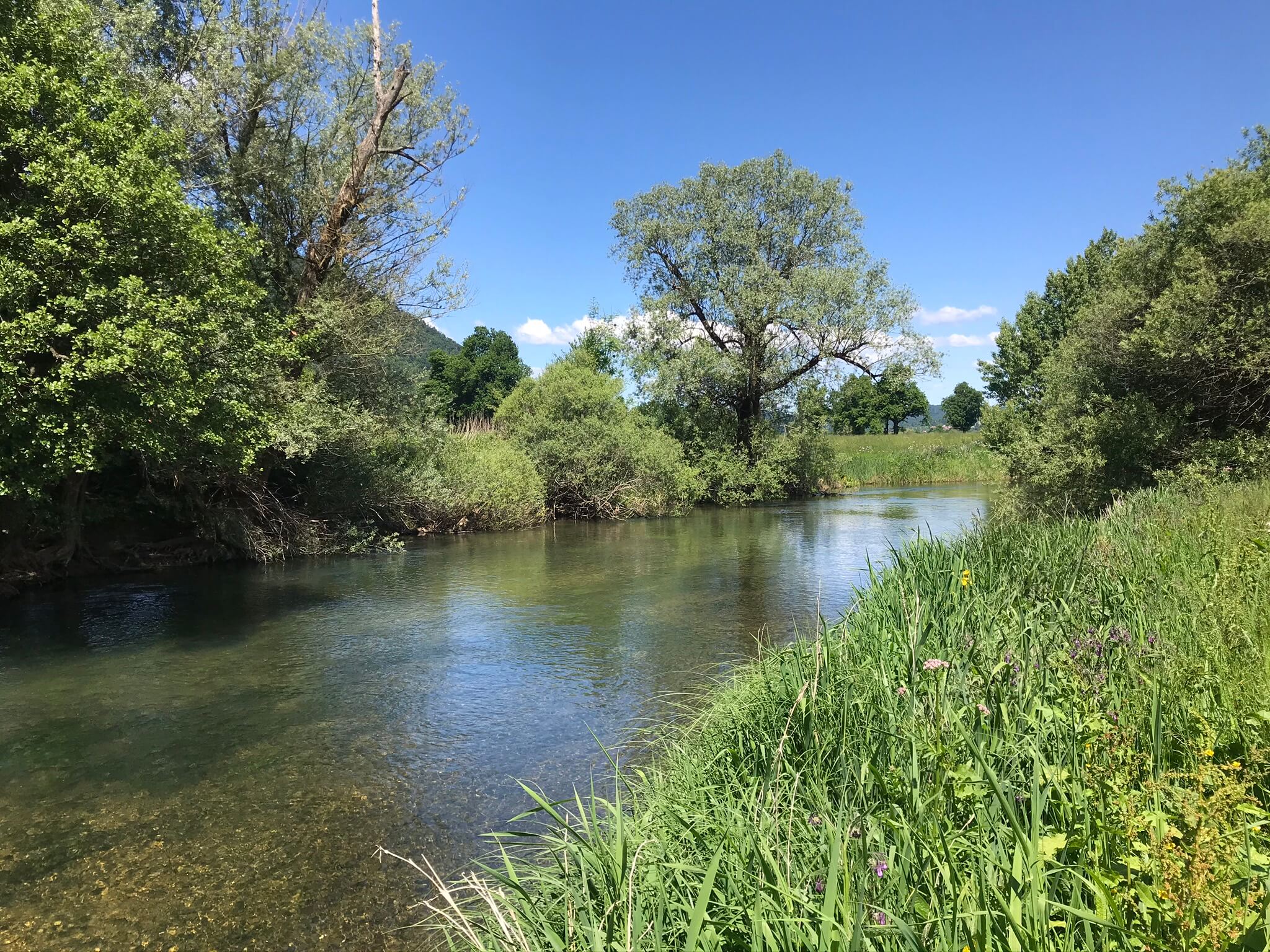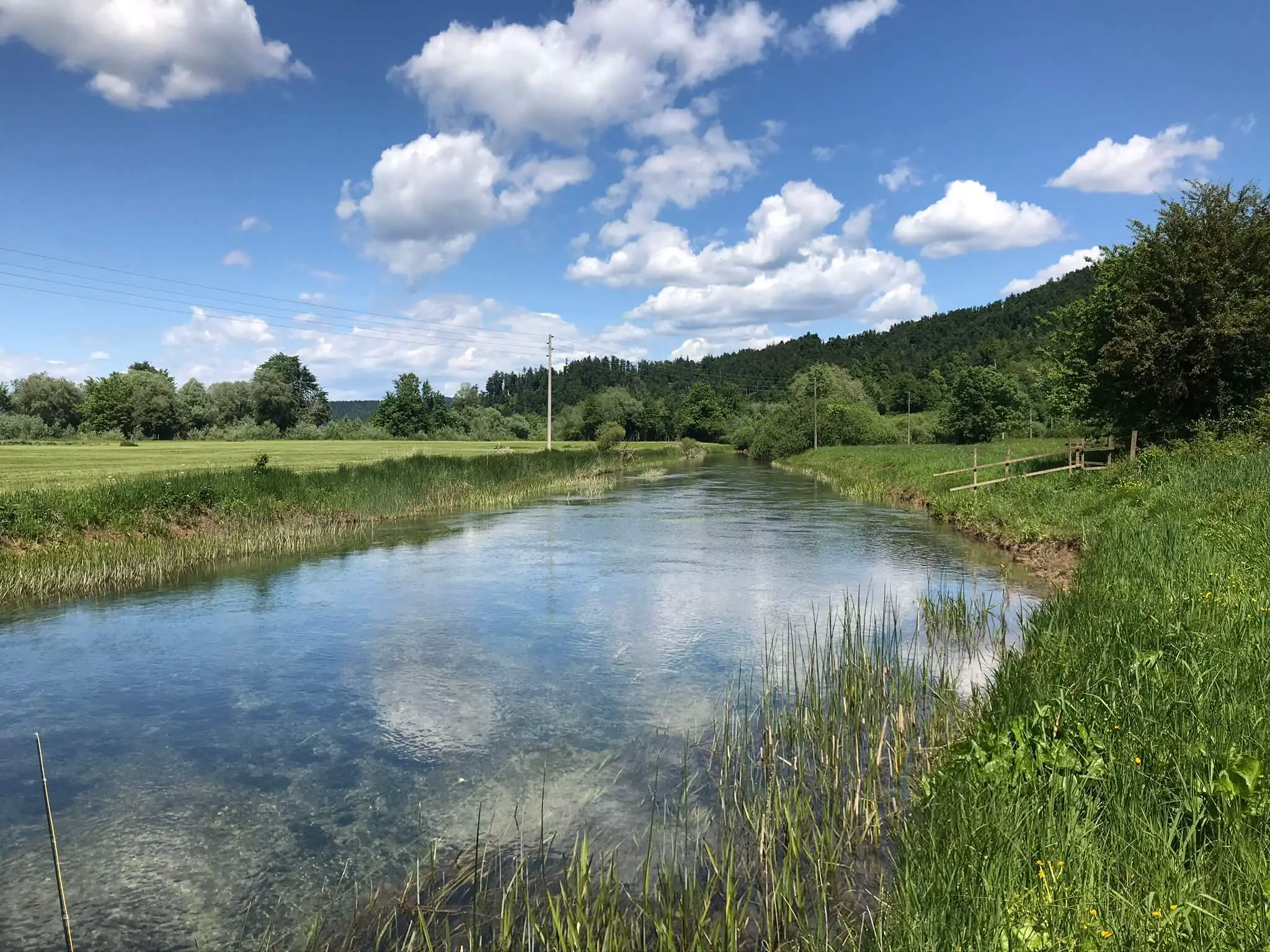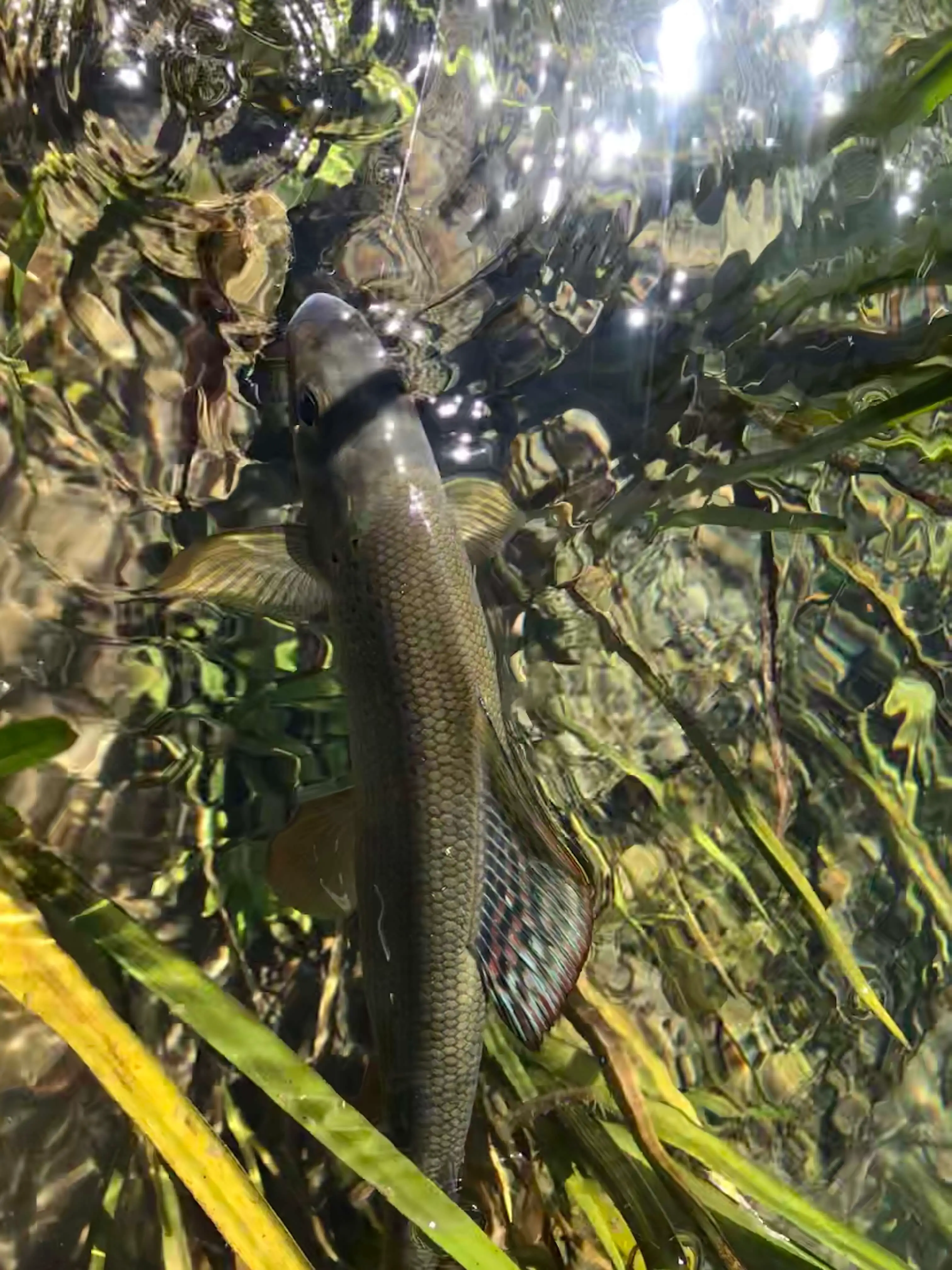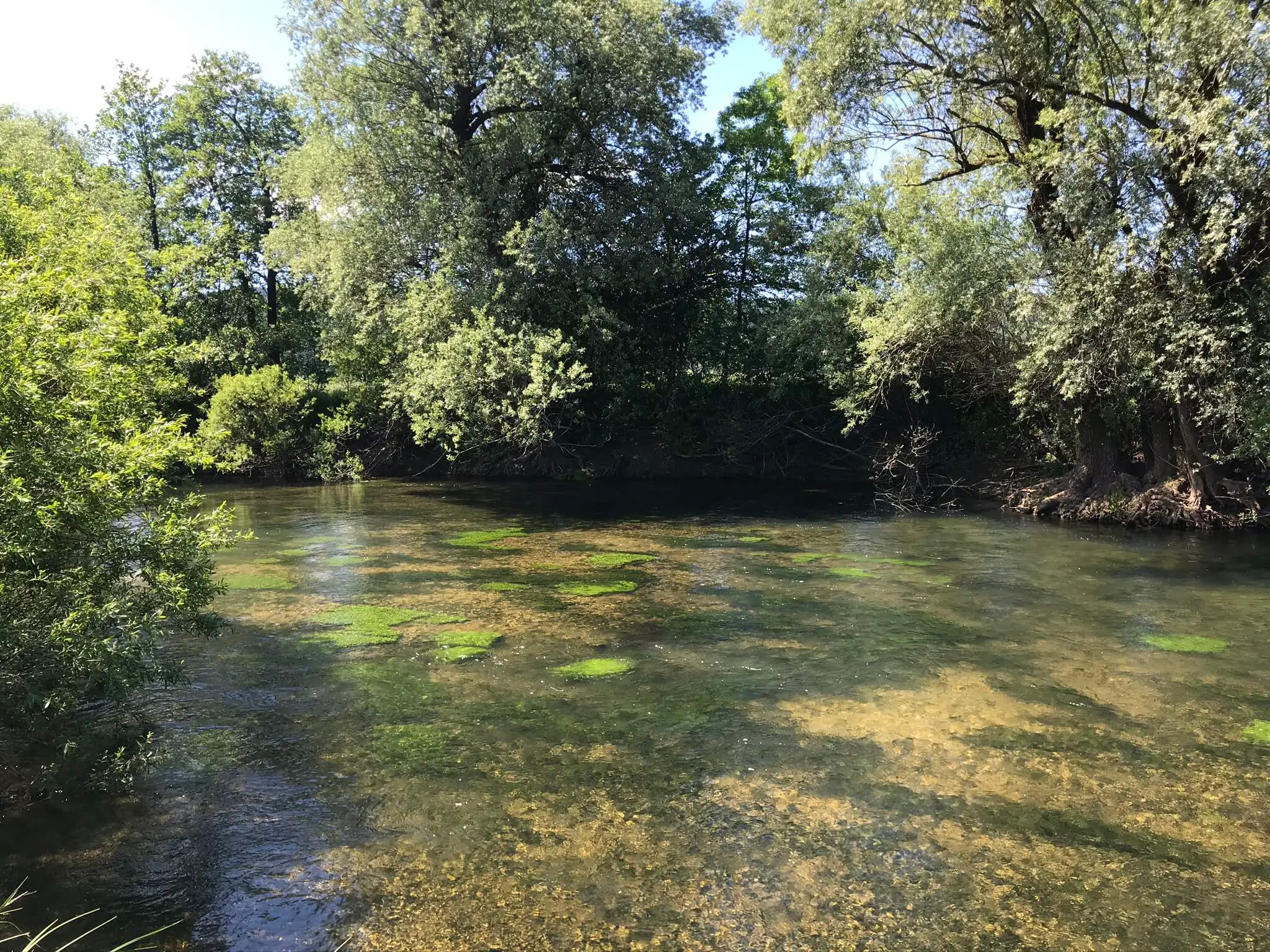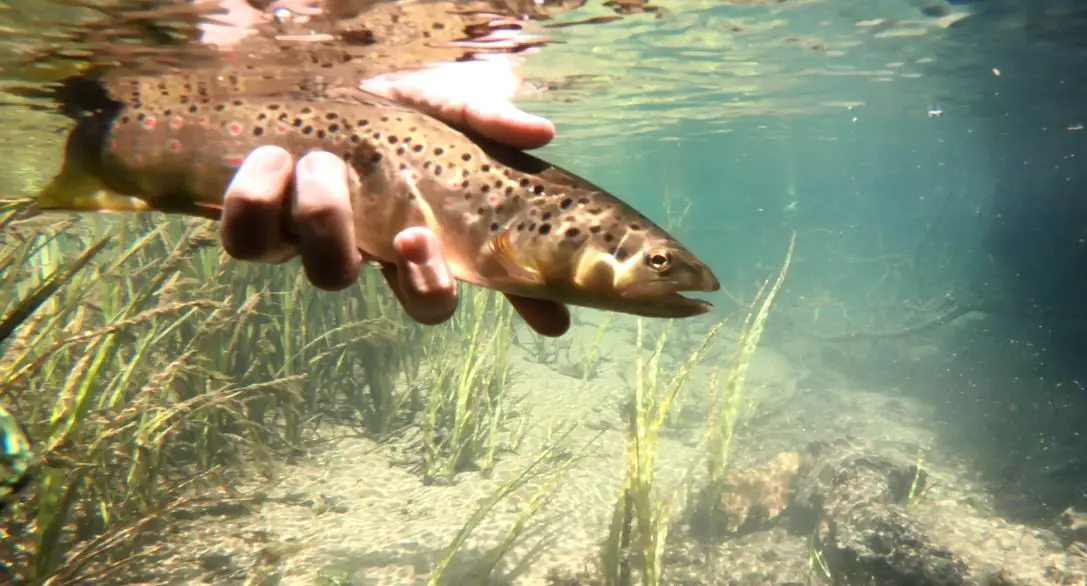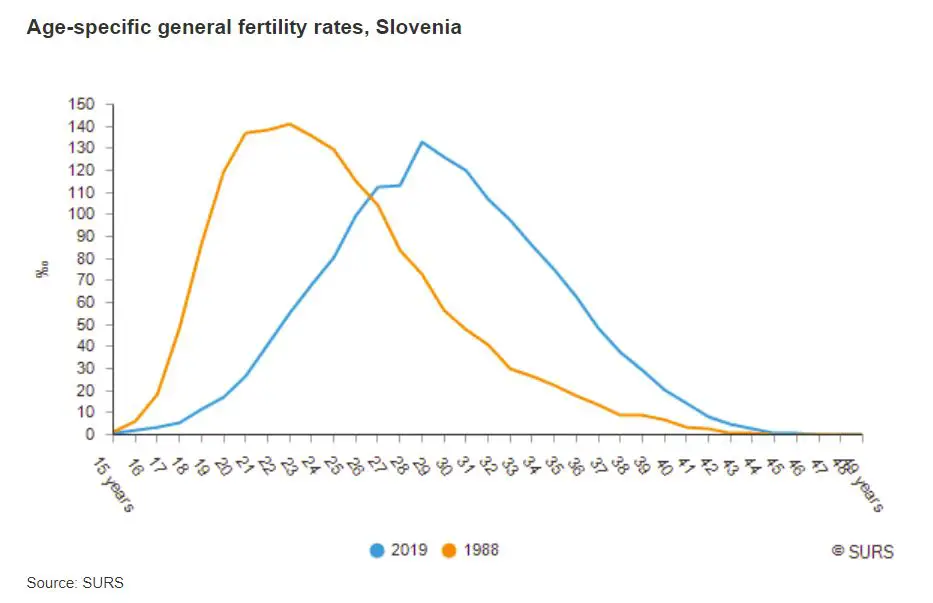News
STA, 26 June 2020 - The National Institute for Public Health (NIJZ) has highlighted on the occasion of International Day against Drug Abuse the problem of widespread cannabis use among Slovenian adolescents. An international study places Slovenia among the countries with the highest shares of 15-year-olds using cannabis.
The institute pointed to the 2018 HBSC (Health Behaviour in School-Aged Children WHO collaborative cross-national survey) report that showed an average of 13% of 15-year-olds in the 45 participating countries have already used cannabis. The share for Slovenia is 21%, which ranks the country 7th, the NIJZ said.
Related: Talking with the Slovenian Cannabis Social Club (SKSK) About Its Aims & Achievements
Slovenia fares even worse when it comes to 15-year-olds who have used cannabis in the 30 days before being quizzed for the survey. The international average is 7%, while it is 13% in Slovenia, which places the country only behind Canada and Bulgaria.
The NIJZ listed relative ease of access as one of the reasons for widespread use of cannabis among Slovenian youngsters. The survey has half of the 15-year-old Slovenian respondents assessing they could obtain cannabis easily or very easily within 24 hours.
Related: Learn Slovenian With Cannabis
The institute stressed the importance of preventive activities, such as equipping young people with proper social, emotional and behavioural skills, and measures aimed at reducing access to drugs, while stressing the use of cannabis among young people is harmful for brain development.
"Research has shown that with children and youngsters cannabinoids affect the development of the part of the brain responsible for the processing of received information and for thought processes helping solve problems and taking decisions. With regular use, these capacities are reduced, especially for those who start using this drug before the age of 18," Ada Hočevar Grom of the NIJZ warned.
Moreover, some research links the use of cannabis to poorer school performance and to the increased risk of the abuse of other drugs and addiction.
Earlier his year we had an interview with Matej Godec, of FLYFISHINGODEC, a boutique tourist agency specialized in organizing fishing and other excursions around Slovenia. Today he tells of a recent fishing trip to a favourite spot in the country.
The Unica River, managed by the Fisheries Institute of Slovenia, is considered one of the most beautiful fly fishing areas in Slovenia, and a visit is always something special. The gorgeous scenery and landscape of Planinsko polje, the beautiful sunny weather and the green hue of the river, which is dominated by brown trout and grayling, ensure that you’ll spend a wonderful day fly fishing.
Unica, aka the Slovenian sinking river, is formed by the confluence of the rivers Pivka and Raka in Planinska jama. Their merger represents the largest confluence of underground rivers in Europe. The overhead stream of the Unica is about 10 km long. It flows from south to north along Planinsko polje.
I decided to start mine from the large parking lot at Hasberg Castle. You can’t miss the well-trodden paths by the river, as the river attracts anglers from all over Slovenia and world. The water level on the day of my visit was ideal - 32 cm / 4.59 cm3 (you can check it now here) - and the swarming of insects in the air let me know that I’d be fishing with a tied dry fly and my box of heavy nymphs would stay in the bag. And it really was that way. The mowed fields do not pose a problem for the anglers with longer throws, so it’s also possible to approach the secret fish on the other side of the river, hidden under trees and bushes.
Grayling, 15-20 cm in size, played in the spring sun and picked up my dry fly as if for a bet. For a start, I used a dry fly, a classic, Fratnik's FFly in natural colour tied on a hook size 16. The turning point came when I replaced the Fratnik’s FFly hook size #16 in a natural shade tied to hook #14. The fly on hook #14 made my fishing even more interesting that day, as among the many hatches of small grayling there was also a larger grayling that did not belong to the 50+ club, but is still an enviable size between 40-45 cm. I did not have any brown trout during all the catches that morning, but that soon changed.
After lunch, which I had in the middle of a Planinsko polje, I went to Malenščica. This is the right tributary of the Unica River, and is a smaller and narrower river, overgrown with bushes and greenery, and like Unica it offers shelter to graylings and brown trout. I continued fly fishing with a tied dry fly on hook #14. Hidden behind the bushes and with shorter throws, I tricked a few more beautiful grayling, who were just competing to see who would be first at my fly. When I saw a one picking up, at first look and estimation I thought he could get close to the 50+ club, I was surprised by a 40+ brown trout from the stream, which bit into a dry fly as if it hadn’t eaten for three days. The fight with the hungry brown trout lasted a full 10 minutes. Finally I managed to get it safely to a shore and catch it in the net. All the caught fish, some after being photographed, I returned safely and unharmed to their realm of the depths.
I ended the day with a visit to Hasberg Castle, which in its time on the banks of the Unica River inspired and reigned over the area with its beautiful gardens, staircases and courtyard. It was a wonderful day, not only for the fishing, but for the peace and quiet in beautiful surroundings, and I will definitely be back at Unica soon.
If you’d like to book a fishing course, day school or trip with Matej, throughout the year and at many places in Slovenia, then check out his site (in English) FLYFISHINGODEC.
STA, 25 June 2020 - The number of asylum request filed in Slovenia increased by 33% to 3,820 last year, while the total increase among EU members was 11% to 738,425, shows an annual report published on Thursday by the European Asylum Support Office (EASO).
EASO pointed out that 2019 had been the first year after 2015 to see an increase in the number of applications at the annual level. It added the reasons included a 103% rise in applicants from Venezuela and a 214% increase in asylum seekers from Columbia. While some countries received more applications than in 2015, Germany stood out with 165,615.
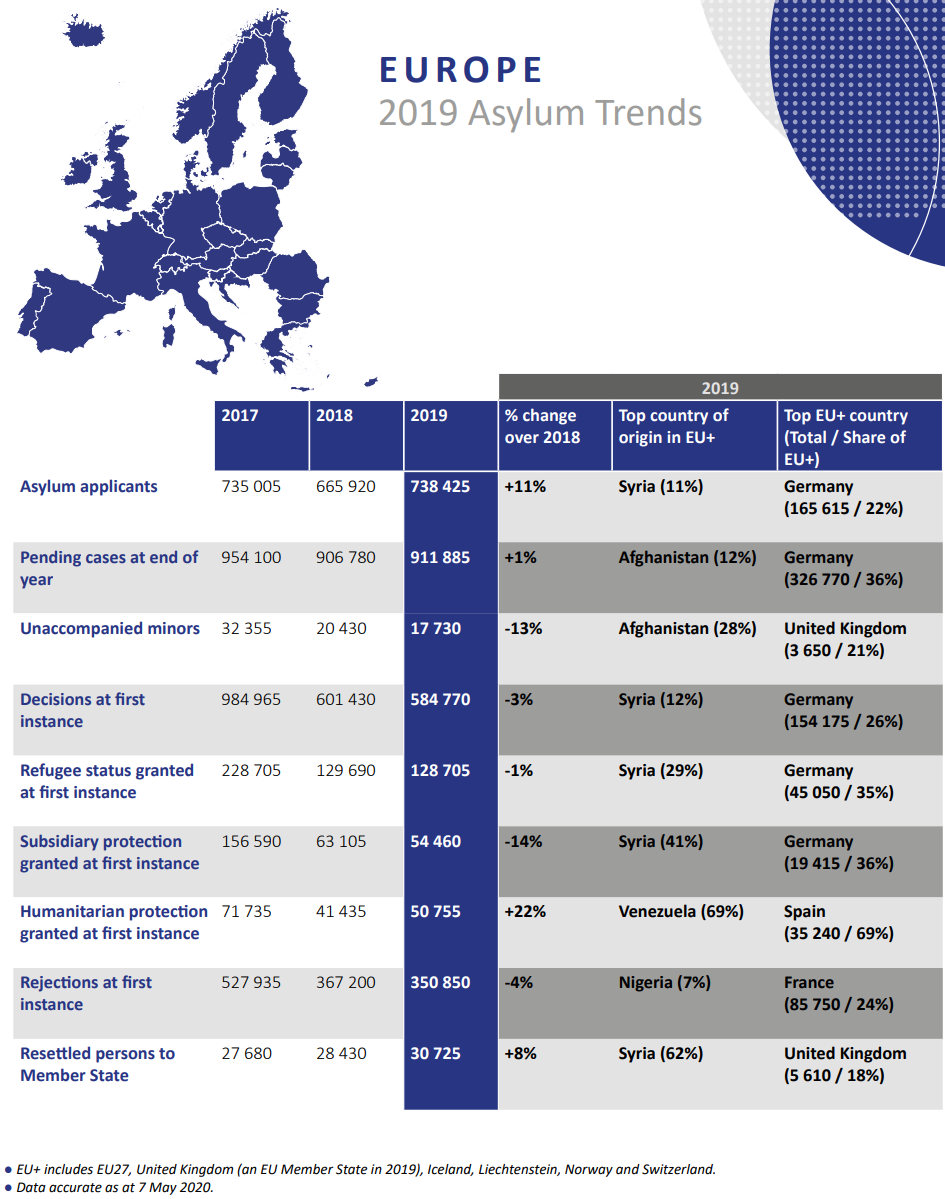
The largest share among the asylum seekers in the EU (11%) was accounted for by Syrians, followed Afghans (8.2%) and Venezuelans (6.2%), while Algerians topped the list in Slovenia.
Around 30,700 persons came to the EU last year as part of the relocation scheme, which envisages the admitting of 50,000 migrants. Slovenia accepted no migrants as part the scheme last year. For the third year running, Syrians made up about two-thirds of the persons relocated, EASO said.
There were 912,000 unresolved applications at the end of last year, significantly more than in the pre-2015 period, which the office said shows the pressure that asylum systems continue to operate under. In Slovenia, the number of unresolved cases at the end of last year was 530, a 30% increase on the year before.
The full report, in PDF form
STA, 23 June 2020 - A total of 19,328 children were born in Slovenia in 2019, 1.3% fewer then the year before, but the birth rate remained at 1.61. The number of deaths, at 20,588, exceeded the number of births for the third year running, show data released on Tuesday by the Statistics Office.
This is the second year in a row that fewer than 20,000 children were born in Slovenia after the figure had been exceeded for ten consecutive years prior to 2018.
At 9,977, the number of boys born fell short of 10,000 for the first time in 12 years. The number for girls, already below 10,000 in 2016, was 9,351.
One of the reasons for the declining number of births in recent years lies in an increasing number of women putting off the decision to have their first child. The average age increased again last year, to 29.6 from 29.5, while this compares to 23 three decades ago.
This also pushes up the average age of the mothers of newborns in general - it was 31.1 last year, while it stood at 25.9 in 1989.
Another reason is the decline in the birth rate seen in the 1980s and 1990s, which has led to a lower number of women aged between 25 and 34 at present.
Meanwhile, the parents of 57.7% of the 2019 newborns were not married. 16,175 children were born to parents who both had Slovenian citizenship and 1,339 to parents neither of whom had Slovenian citizenship.
Luka was the favourite name picked for boys for the 21st year running, being given to 2.8% of the newborns, while Zala made it back to the top among girls with 2.9%.
Meanwhile, the number of the deaths increased by 0.5% compared to 2018. The average age of the deceased exceeded 78 for the first time last year, reaching 78.1. It was 73.9 for men and 82.1 for women. In the last decade, the average for men increased by 3.8 years and for women by three years.
According to the Statistics Office, boys born last year can expect to live until they are 78.5, while the life expectancy for girls is 84.2. In the last ten years, the figures have increased by 9.1 and 7.1 years, respectively.
The share of so called premature deaths, meaning before the age of 65, was 16% last year - 22.4% among men and 9.8% among women. The gap between men and women in this category has been shrinking in the last decade. In 2009 the share for men was 30.8% and for women 12.4%.
The infant mortality rate last year was 2.1 deaths per 1,000 live births. The rate has been decreasing in Slovenia in the last decade and is among the lowest among EU member states.
More stories on demographics in Slovenia, while you can see more on births in Slovenia in 2019 here
Check the date at the top of the page, and you can find all the "morning headlines" stories here. You can also follow us on Facebook and get all the news in your feed.
This summary is provided by the STA:
Six new coronavirus infections confirmed on Wednesday
LJUBLJANA - Six new coronavirus cases were recorded in Slovenia as 1,212 people were tested on Wednesday, which is one case less than on Tuesday and six less than on Monday. No deaths were reported. The new cases, which were scattered across the country, take the total number of confirmed infections so far to 1,547. The death toll remains at 111. Seven Covid-19 patients are currently treated in hospital, two of which are in intensive care, the government said. Face masks became obligatory in closed public spaces in Slovenia again today.
Slovenia celebrated Statehood Day
LJUBLJANA - Several events featuring state officials were held to mark Statehood Day, a public holiday. President Borut Pahor, who laid a wreath at the Monument to the Victims of All Wars in Congress Square, received numerous notes of congratulation from leaders from around the world. The memory of 25 June in 1991, when parliament passed key pieces of legislation that paved the legal path for the country's independence from Yugoslavia, was also hailed by parties and organisations. There is acknowledgement that many challenges lie ahead, but also confidence Slovenia is up to the task, like it was in 1991.
Pahor worried by dwindling trust in political institutions, autocratic tendencies
LJUBLJANA - President Borut Pahor expressed concern in an interview Wednesday about the low level of trust in political institutions, saying things could get to a point "where somebody would understand this as a call for autocracy". "This simply must not happen," he told Radio Ognjišče. Pahor also commented on the anti-government protests. He said it is not possible to expect political correctness at protests, while the key thing is that there no physical and verbal violence and that death threats are avoided. In what is a likely reference to the "death to Janšism" slogan, which is perceived by PM Janez Janša as a direct death threat, Pahor stressed he meant threats that targeted physical persons, not calls addressing phenomena.
Slovenia sees 33% increase in asylum requests in 2019, EU 11%
BRUSSELS, Belgium - The number of asylum request filed in Slovenia increased by 33% to 3,820 last year, while the total increase in the EU was 11% to 738,425, shows an annual report published by the European Asylum Support Office (EASO). The largest share among the asylum seekers in the EU (11%) was accounted for by Syrians, followed Afghans (8.2%) and Venezuelans (6.2%) - the total number of the latter doubled -, while Algerians topped the list in Slovenia. There were 912,000 unresolved applications, significantly more than in the pre-2015 period. In Slovenia, the number of unresolved cases at the end of last year was 530, a 30% increase on the year before.
Petrol secures EUR 25m loan from EBRD to cushion coronavirus impact
LONDON/LJUBLJANA - The European Bank for Reconstruction and Development (EBRD) has approved a loan of up to EUR 25 million to the Slovenian energy company Petrol to help it mitigate the Covid-19 impact on its operations. In Wednesday's announcement, the London-based financial institution said the senior loan with up to two-year tenor would allow Petrol to actively manage its working capital needs across business lines amid the increased sales volatility caused by the coronavirus outbreak. The financing was approved on 24 April in the context the EBRD's response to the Covid-19 pandemic.
If you're learning Slovenian then you can find all our dual texts here
STA, 25 June 2020 - Slovenia's population is ageing, while the number of residents is increasing on the back of immigration, show data for the 1991-2020 period published by the Statistics Office to mark Statehood Day. The state of the Slovenian economy is improving since the country declared independence, as are connections with foreign markets.
Marking Statehood Day on 25 June, the day in 1991 when Slovenia declared independence from Yugoslavia, the Statistics Office said that on 1 January 2020, Slovenia had 2,095,861 residents or 15,000 more year-on-year.
There were 1,051,066 men and 1,044,79 women, with men outnumbering women primarily because of the growing number of immigrants, who are mostly men.
Slovenia's population has been increasing in the last 25 years, as has its average age. At the beginning of 2019, the average age of a Slovenian resident was 43.4, which is two years more than ten years ago. A fifth of Slovenians are aged 65 or older.
Following the declaration of independence, Slovenia's economy experienced a blow as it lost the ex-Yugoslav market, introduced market economy and faced a high inflation rate. It was almost 250% in 1991, and it took four years to drop below 10%.
In 1991, Slovenia's gross domestic product (GDP) dropped in real terms by 8.9%, and by a further 5.5% in 1992. After a longer and relatively stable period, it was down by 7.8% in 2009 at the peak of the global economic and financial crisis.
Up until this spring, the Slovenian economy was recovering at an annual pace of between 3% and 5%. In the first quarter of 2020, the country's GDP was meanwhile down by 2.3% compared to the same quarter last year.
In the first quarter of the year, the very end of which was also marked by the coronavirus epidemic, foreign and domestic demand was also down.
In terms of GDP per capita, Slovenia placed 16th last year among the 28 EU member states.
Germany has remained Slovenia's most important trade partner all these years, while within the EU, Slovenia's trade with Austria increased the most. Outside the EU, Slovenia has exported most of its goods to the countries of the former Yugoslavia and to China.
In the 1991-2020 period, the Statistics Office recorded the highest unemployment rate in the first quarter of 2011, at 11.1%, while the lowest rate, at 4%, was recorded in the last quarter of 2019, when only 41,000 persons were unemployed.
The number of tourists visiting Slovenia has been mostly increasing since 1991, reaching a record 6.2 million last year. The figures are expected to be much lower this year as tourism was ground to a halt in mid-March and is still recovering.
You can see more on these statistics here
STA, 24 June 2020 - Several thousand people packed Prešeren Square in the heart of Ljubljana to state their opposition to the policies of the Janez Janša government on the eve of Statehood Day just a couple of hours before the official state ceremony on the occasion was due to begin in Congress Square, a stone's throw away.
The event was being monitored closely by police and there was some tension as a few dozen counter-protesters in yellow vests arrived in the square, carrying banners saying Anarchists are Left Fascists.
#snowflakes pic.twitter.com/lBVxO9BdMj
— ? stariha (@starihalj) June 24, 2020
The smaller group lined up in front of the monument to poet France Prešeren in the centre of the square, inviting boos and shouts "troublemakers" from the crowd turning up for the alternative ceremony, with the programme continuing from the stairs leading up to the church on the opposite side of the square.
The programme featured a women's choir signing The Internationale, the left-wing anthem, and speeches calling for a better world and against fascism, exclusions and restrictions on NGOs.
Those taking to the stage included culture workers, who called for a boycott of the state ceremony, arguing that the Slovenian population's referendum decision to break away from Yugoslavia had been abused to restore outdated capitalism, plunder social property, erase a part of the population and establish a political class of untouchables and their sidekicks.
Danes je praznik države. pic.twitter.com/0Z2z4yGT5L
— Jure Trampuš (@juretrampus) June 24, 2020
The group organising today's alternative ceremony had been holding weekly protests in front of the Ministry of Culture over what it said was the ministry's lack of response to the crisis in the culture sector.
The group, much like protesters that have been turning up for demonstrations on bicycles or on foot for several Fridays, also criticised "desire for absolute power", insults and exclusion which they attributed to the current government and in particular PM Janša.
The event was also addressed by young climate activists and other environmental activists. It was attended by artists, writers, performers and some opposition politicians, including former Prime Minister Marjan Šarec, who told reporters he came to support people who turned up because they loved their country but disagreed with the government's actions.
Among those present was also Ivan Gale, the whistleblower from the Agency for Commodity Reserves who alleged wrongdoing in the purchases of masks, and a flag carrying member of the association fostering the heritage of the Partisan WWII resistance.
Flag-bearers had been barred from the state ceremony, ostensibly because of the coronavirus, which is why those turned up for a ceremony in Trzin, which was addressed by Ladislav Lipič, the head of the association of the 1991 war of Slovenian veterans.
The participants in the alternative Ljubljana ceremony later walked to the Presidential Palace and government headquarters, where they laid flowers and lit candles in tribute of the erased, before ending the protest in the French Revolution Square.
Jemljem nazaj izjavo, da mora vsak politik na proslavo. Ne! Vsak pošten politik jo mora bojkotirat. Kongresni trg je z vseh strani zablokiran. Dostop samo z vabilom. Ves levi breg je zablokiran. Vsi mostovi. Naj kar imajo to svojo proslavo. Ne me jebat, no. Čez Šuštarski most … pic.twitter.com/Sy5yxUE2Bb
— Marko Crnkovič (@crnkovic) June 24, 2020
This Shouldn't Happen#police #corruptgovernment #unnecessary #repression #exaggeration #nonsense #stupidity #noreason #streetphotography #street #bridge #Ljubljana #Slovenia #EU #europe #life #people #freedom #nofreedom #sadness #ThisIsSlovenia #oldtownhttps://t.co/zWbYE9b5by pic.twitter.com/f8gg8V7pE4
— Matija Nose (@TheMatN) June 24, 2020
Fascist president of #Slovenia @BorutPahor and #corrupt @JJansaSDS just captured centre of Ljubljana to celebrate 29th anniversary of independence. Many streets are locked for citizens. This is how fascism in Europe returns @coe @EU_Commission @EUCouncil @EPP @amnesty @RSF_inter pic.twitter.com/S3Mcw4hqX3
— Blaž Zgaga (@blaz_zgaga) June 24, 2020
The streets around Congress Square where the state ceremony started at shortly after 9pm were cordoned off. Šarec commented that the whole city was being fenced in and that there had been more railings erected every week, criticising police acting against some participants in the weekly Friday protests.
STA, 24 June 2020 - President Borut Pahor addressed a state ceremony on the eve of Statehood Day, urging acknowledging the role of democracy and dialogue in Slovenia's further development. The evening saw political divisions rise again with some boycotting the official ceremony or opting for an alternative one.
Pahor, the keynote speaker at the official ceremony in Congress Square in the capital, highlighted that the power of democracy did not merely lie in enabling diversity, but also in bridging the divides for the greater good through democratic dialogue.
Moč demokracije in nujnost vizije. Govor predsednika republike na osrednji slovesnosti ob dnevu državnosti. https://t.co/tP0LcKwkMS pic.twitter.com/a1vOT47IOJ
— Borut Pahor (@BorutPahor) June 24, 2020
During the time of independence efforts, Slovenians managed to pursue joint aims despite of their political and other divides, said the president on the eve of the holiday commemorating declaring independence from Yugoslavia in June 1991.
"I miss this democratic zeal today. I miss trust and confidence to be able to talk honestly and without insults about everything and come to agreement on many a thing."
"I do not call for political unity. I call for dialogue and cooperation," said the president, adding that Slovenia needed both in the current times.
In the wake of the corona crisis a clear vision is key and there are opportunities for innovative, sustainable solutions, he said, calling for a vision of a green and digital Slovenia to be part of the nearing Germany-Portugal-Slovenia trio EU Council presidency.
He also lauded Slovenia's dealing with the Covid-19 epidemic, saying that the country had not merely kept the death toll relatively low but also acted in line with the rule of law, thus echoing democratic values that were alive during independence efforts.
Pahor's address was followed by a cultural programme revolving around patriotic themes. Due to coronavirus restrictions, a maximum of 500 participants were allowed. Organisers have been thus forced to restrict the number of performers and participants as well as cancel the attendance of flag-bearers.
The event was attended by senior officials, including former President Milan Kučan and former Prime Minister Lojze Peterle as well as some members of the opposition.
The major opposition party LMŠ did not attend the ceremony though, nor did the Left. Both missed it due to their disagreement with the government policies and instead participated in an alternative event that was held before the official ceremony.
Earlier, Pahor held a traditional reception at Vila Podrožnik for the relatives of those who died or were injured during Slovenia's ten-day independence war. He thanked the families for their contribution to the country's independence and called for keeping the memory of the heroic actions alive.
Moreover, Pahor said that the relevant legislation should be reviewed and changes introduced to improve the status of the relatives before next year's 30th anniversary of independence.
Prior to Pahor's evening address, parliamentary Speaker Igor Zorčič addressed the National Assembly at a ceremonial session, urging citizens to respect Slovenia, its history and symbols and by doing that show respect for all the people who have paved the way for the country to become independent.
He stressed the importance of democratic dialogue and high-level political culture for the efforts that had led to Slovenia's independence and urged similar conduct and cooperation to tackle pressing challenges, including those caused by the corona crisis.
Zorčič moreover added that Slovenians had a country that could be envied by the majority of the world population and highlighted that having such a country was a sort of privilege but also responsibility.
Prime Minister Janez Janša went down memory lane in his Statehood Day message, reminiscing about Slovenia's independence efforts and the nation's unity at the time. He wished that people would see an independent country as a gift and opportunity for everybody.
"The power of a nation that is united is a power that is unstoppable," he wrote, adding that although the country had achieved a lot, opportunities were also missed due to divisions.
Message by the Prime Minister of the Republic of Slovenia @JJansaSDS on Statehood Day: Slovenia, my homelandhttps://t.co/eYRvUIEC7k pic.twitter.com/MIr7G8hcNJ
— Slovenian Government (@govSlovenia) June 24, 2020
Slovenia's source of values is the times of independence efforts, he said, urging citizens to stay united and act responsibly to fight off any potential additional waves of coronavirus infections.
Human Rights Ombudsman Peter Svetina meanwhile highlighted that Slovenia was founded on respect for human rights and basic liberties and urged striving to maintain such values.
He pointed out that a democratic society meant ensuring freedom of expression as well as the right to rally.
Celebrations of the coming holiday also included mass for homeland that was said at the Ljubljana cathedral. Koper bishop Jurij Bizjak thanked top state officials for leading the country, particularly during the Covid-19 epidemic.
Predsednik Republike Slovenije Borut Pahor se je udeležil maše za domovino, ki jo je daroval ljubljanski nadškof metropolit in predsednik Slovenske škofovske konference msgr. Stanislav Zore. pic.twitter.com/OnJojfua0E
— Borut Pahor (@BorutPahor) June 24, 2020
He also expressed admiration and respect for the state authorities staying humble and patient when faced with "constant insults and humiliations, insinuations and suspicions, malicious allegations and speculations, lies and slander" that besmirch their reputation, "their good name to which every man has a right, and even more so excellent elects and representatives of the nation".
Bizjak highlighted the importance of the presumption of innocence and said that nobody should be exposed to media attacks until given an opportunity to defend themselves.
The mass was attended by Pahor, Janša, Zorčič and Svetina as well as Chief of the General Staff, Brigadier General Robert Glavaš, Police Commissioner Anton Travner, Supreme Court president Damijan Florjančič and a number of other top officials and diplomats as well as representatives of other religious communities.
Meanwhile, an alternative ceremony was held in Prešeren Square with several thousand people gathering before touring the streets of the capital, calling for a better world and against fascism, exclusions and restrictions on NGO and being critical of the Janša government as well as Pahor.
Fascist president of #Slovenia @BorutPahor and #corrupt @JJansaSDS just captured centre of Ljubljana to celebrate 29th anniversary of independence. Many streets are locked for citizens. This is how fascism in Europe returns @coe @EU_Commission @EUCouncil @EPP @amnesty @RSF_inter pic.twitter.com/S3Mcw4hqX3
— Blaž Zgaga (@blaz_zgaga) June 24, 2020
Check the date at the top of the page, and you can find all the "morning headlines" stories here. You can also follow us on Facebook and get all the news in your feed.
This summary is provided by the STA:
Statehood Day ceremonies marked by division and discord
LJUBLJANA - President Borut Pahor addressed the state ceremony on the eve of Statehood Day in Ljubljana's Congress Square, urging acknowledging the role of democracy and dialogue in Slovenia's further development. The evening saw political divisions rise again with some boycotting the official ceremony and several thousand turning up for an alternative event in the nearby Prešeren Square shortly before the official festivity. "I miss the democratic zeal today. I miss trust and confidence to be able to talk honestly and without insults about everything and come to agreement on many a thing," Pahor said in his keynote as he looked back to when Slovenia declared independence from Yugoslavia in 1991.
Face masks compulsory again, legal basis created for contact tracing app
LJUBLJANA - The government created the legal basis for a contact tracing app in amendments to the third stimulus package, while it also decreed that face masks are compulsory again in indoor public places, and on public transport from Thursday. This comes after Slovenia saw an uptick in new coronavirus cases with seven new infections confirmed on Tuesday after 13 cases the day before, a two-month high. Most stem from abroad. Although no new fatalities have been recorded since 1 June the death total was raised to 111 after two more deaths from April had been added.
List of Covid-19 risky countries expanded
LJUBLJANA - The government removed Montenegro and Luxembourg from the green list of Covid-19-safe countries from which arrivals face no restrictions, while adding Albania and Portugal to the list of red countries from where entry into Slovenia entails a mandatory two-week quarantine. New restrictions for all four countries apply from Thursday. The Foreign Ministry strongly advises against any travel to the red-labelled countries. Health Minister Tomaž Gantar said the country cannot go from green to read in a day, but only "via a transition".
Furlough scheme to be extended
LJUBLJANA - The government proposed extending the furlough scheme by at least a month until the end of July in amendments to the third stimulus package. Moreover, the changes will provide recovery funds for social institutions in the wake of the corona crisis and make accommodation providers open only during the tourism season eligible for accepting holiday vouchers. Under the changes, the government will also again cover quarantine costs instead of companies. The government also further detailed the loan guarantee scheme to make it workable and tackle company liquidity problems.
Janša rejects claims he has authoritarian tendencies, says govt working hard
LJUBLJANA - Prime Minister Janez Janša rejected in an interview with the weekly Demokracija accusations about authoritarian tendencies, saying the reproaches "are coming from those who left the country naked and barefoot before one of the hardest tests in this nation's history". Arguing that unlike its predecessors the government is not only engaging in empty talk but is cooperating, Janša said all coronavirus crisis stimulus packages had been coordinated with stakeholders across the board and that the opposition had been invited to cooperate as well.
Govt adopts bills to secure defence investment improve soldier status
LJUBLJANA - The government endorsed and submitted to parliament a bill that would provide EUR 780 million for investment in the Slovenian Armed Forces between 2021 in 2026, the bulk for the acquisition of armoured personnel vehicles to set up a battalion battlegroup, plus an aircraft and two helicopters. The government also put forward a bill amending the defence act to tackle the career issues of soldiers once they turn 45, either by envisaging contract extension options or re-employment alternatives at other state bodies. The measures is to cost EUR 500,000 in six years.
Soldiers report to prime minister on eve of Statehood Day
LJUBLJANA - Members of the Slovenian Armed Forces (SAF) serving in international operations and missions reported via video link to PM Janez Janša, who commended the commanders of contingents for keeping Slovenian soldiers safe and healthy at the time of increased risk due to the Covid-19 pandemic. The videoconference coming on the eve of Statehood Day was also addressed by Brigadier General Robert Glavaš, the chief of the general staff of the SAF, who noted that Slovenian solders abroad were being constantly praised.
Govt forecaster corrects outlook to a milder contraction
LJUBLJANA - The Institute of Macroeconomic Analysis and Development (IMAD) slightly upgraded its forecasts for Slovenia's economy for this year, now projecting a contraction of 7.6%, down from 8.1% forecast in May, to be followed by a 4.5% growth in 2021. "The virus will be present for quite a while longer," IMAD director Maja Bednaš told reporters in Ljubljana as she presented the corrected outlook, which will serve as a basis for the government to draw up a supplementary budget.
FinMin urges banks to think about jobs and not primarily about profit
LJUBLJANA - Addressing a Slovenian Bank Association conference on the impact of Covid-19 on the economy, Finance Minister Andrej Šircelj said banks should presently focus not so much on their profitability but on helping preserve jobs and companies in general. "A long-term perspective is needed," he said, arguing banks could not do without companies.
Trade unions on alert as employees threatened with dismissals over quarantine
LJUBLJANA - The decision of some companies to advise their workers not to travel outside Slovenia for summer vacation because they may face a two-week quarantine upon return and consequently put their jobs at risk has caused a stir. A trade union reacted by announcing possible lawsuits. The Labour Ministry said that an employer cannot prohibit an employee from leaving the country but can possibly dismiss them for travelling to countries that are on the so-called red list of risky countries. The Labour Inspectorate said that employer notifications or statements whereby employees agree they cannot leave Slovenia when on leave cannot have any direct legal consequences.
European Liberals concerned by political situation in Slovenia
BRUSSELS, Belgium - The Alliance of Liberals and Democrats for Europe Party (ALDE Party) expressed concern over the political situation in Slovenia, with the party head, Hans van Baalen, announcing he would consult with Slovenian members of ALDE on this and consider sending a fact-finding mission to Slovenia. The Slovenian ALDE members are the coalition Modern Centre Party (SMC), and the opposition Marjan Šarec Party (LMŠ) and Alenka Bratušek Party (SAB). According to the newspaper Dnevnik, rumour in Brussels has it that ALDE is displeased with its member SMC.
Statistics show significant blow to tourism during epidemic
LJUBLJANA - About a month after Slovenia emerged from coronavirus lockdown, data released by the Statistics Office on Wednesday show tourism suffered a severe blow during the epidemic. The number of overnight stays in the first five months was 58.8% lower than in the same period last year, while in May, there was a 96.5% drop in guests over May 2019. All tourism facilities were forced to close in mid-March, when Slovenia declared the coronavirus epidemic and imposed a number of restrictions. Small hotels of up to 30 rooms were allowed to reopen on 18 May.
Epidemic restrictions cause biggest drop in service revenue on record
LJUBLJANA - Restrictions in place to fight the coronavirus epidemic in Slovenia in April caused the biggest drop in revenue generated in the services sector since January 2000, when the Statistics Office first started recording service revenue data. Compared to March, revenue dropped by 19.5%, while year-on-year, it was down as much as 30.3%. Revenue dropped in all segments of the services sector, most significantly in services that were banned from operating during the epidemic.
Business sentiment grows for second consecutive month
LJUBLJANA - Business sentiment in Slovenia has grown for the second consecutive time in June, the data released by the Statistics Office showed. The index increased by 8.7 percentage points (pp) to -24.0pp between May and June. Nevertheless, it was still 29.3pp lower than in June 2019 and 24.1pp lower than a years long average.
Home prices up in first quarter, fewer transactions
LJUBLJANA - The prices of homes in Slovenia rose by 1.1% in the first quarter of the year over the previous one and by 5.5% year on year, but the number of transactions was lower and the number of used apartments sold was the lowest in the last five years, the Statistics Office said. The prices of second-hand home units in quarterly comparison were up by 1.2% on average, whereas second-hand apartments were 1.4% dearer and second-hand houses 0.7% costlier.
If you're learning Slovenian then you can find all our dual texts here
Slovenia is as captivating below as it is above. Attesting to this fact is the world-famous Postojna Cave. Its incredible underground formations and the indigenous creature called “the human fish” have been attracting tourists for 200 years. A less known but equally impressive system of caves are the nearby Škocjan Caves, listed among UNESCO’s world heritage sites.
However, Slovenia’s unique karst topography has blessed its lands with numerous other caves, which are gaining in popularity with the recreational pastime called caving.
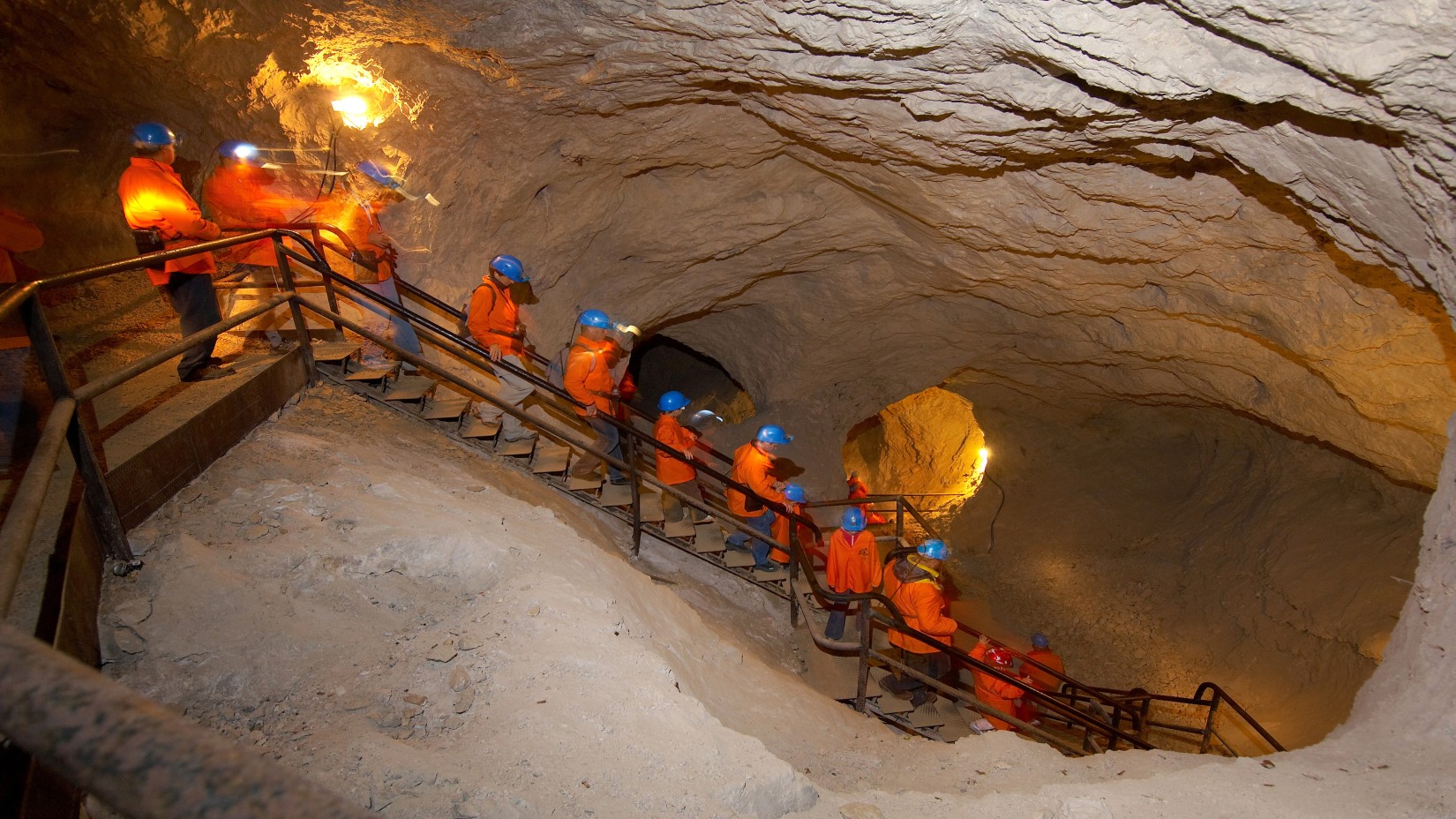
Local and foreign tourists join expert speleologists in exploring the underground world in different locations around the country. Guided caving tours of non-commercial caves are a perfect way of exploring this fascinating subterranean realm, observing the surprising diversity of cave wildlife and learning a great deal about these mysterious geological phenomena.
Unbeknownst to many, a pair of interlinked small caves, Mala and Velika Pasica, are hiding in not so plain sight just outside the capital city of Ljubljana. Used as shelters and storage units during WWII, these caves present visitors with lovely dripstones and bizarre sculptures, especially appealing to young adventurers. If you happen to be in the area, these underground gems make a superb day-trip.
You’re probably familiar with Lake Bled, the celebrated stunner among glacial Alpine lakes. But did you know there’s a spectacular cave located just a stone’s throw away? On the edge of the gorgeous Jelovica Plateau stands a giant hill called Babji Zob (Hag’s Tooth), and below this peculiar rocky giant lies one of the oldest caves in Slovenia and the largest stalactite cave in the Julian Alps.
The Babji Zob Cave was discovered around 1600 and presents visitors with wonderful stalactites, crystals and fossils that make up its passages and tunnels. The cave's main attraction is the Hall of Images, with its large, colourful formations and pillars. For the more adventurous caving enthusiasts, more ‘extreme’ expeditions are organized, which involve abseiling into the deeper parts of the cave and present a truly authentic caving experience. Perhaps not the best idea for the centrophobic or those suffering with vertigo, yet a super safe and exciting experience indeed.
From Bled to Predjama, home of the largest cave castle in the world. This medieval marvel is built over the second longest Slovenian show cave. An impressive 14 kilometres of tunnels have been discovered and archaeological remains dating back to the Stone Age have been found. Besides regular cave tours, deeper sections of the cave in the company of professional explorers, who take visitors through challenging passages and slippery water barriers. Whichever caving experience you opt for, be sure to check out the exceptionally well-preserved Predjama Castle as well. It takes cave-dwelling to a completely different level.
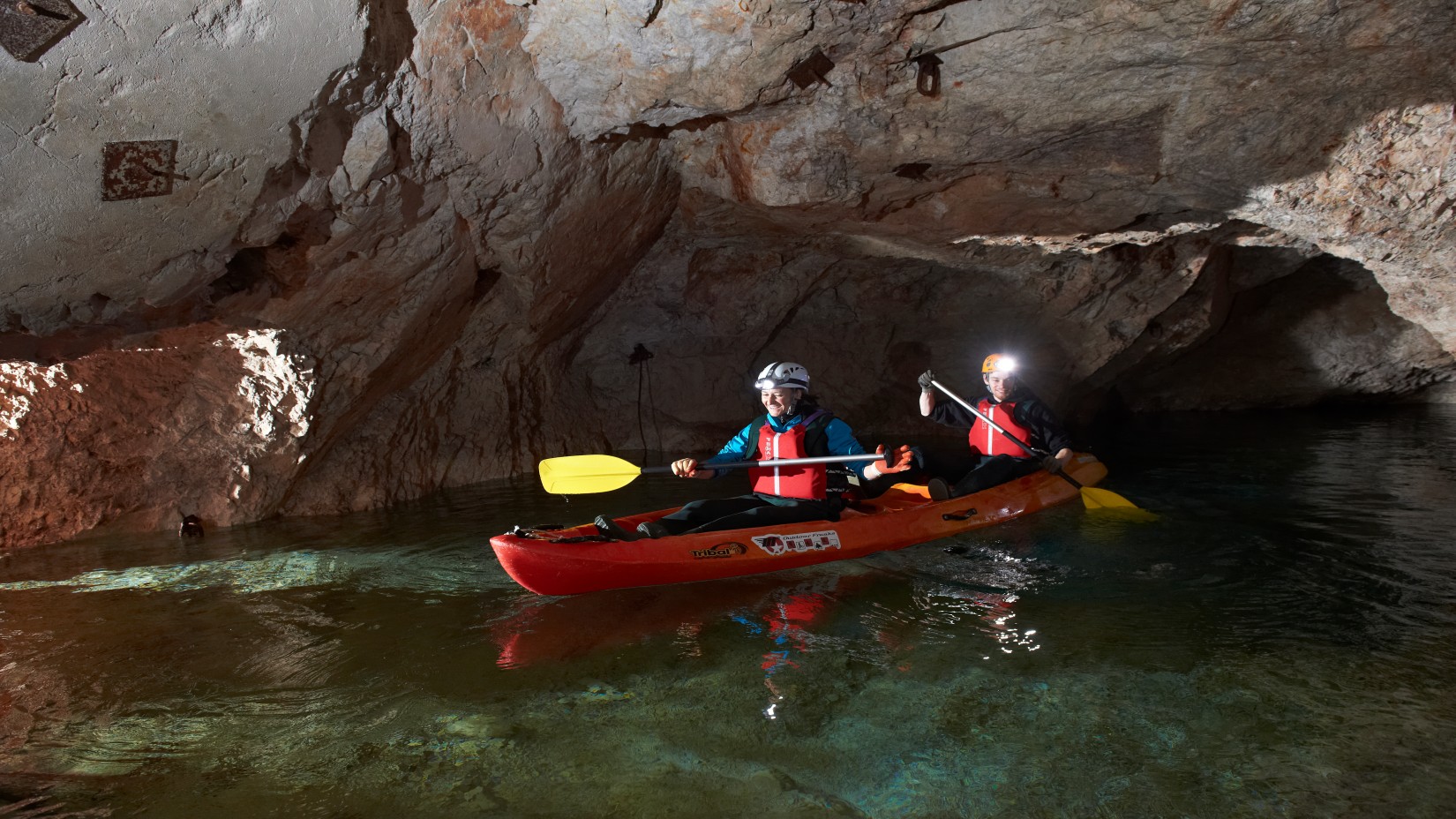
Another highly recommended underground adventure is cave kayaking. Strictly speaking, this activity doesn’t fall under the caving category, as it involves paddling in a flooded mine under a mountain in the picturesque region of Carinthia. That said, it does take place 700 metres under the Earth’s surface where visitors explore a labyrinth of submerged tunnels, excavation sites and incredible underground lakes. Navigating the mysterious narrow passages might not be ideal for claustrophobics, but it’s very safe and just as exciting as it sounds.
Related: The Beauty of Hiking Slovenia
According to Delo, the Slovenian police will add 20 X2 model tasers to its list of active-use equipment starting on July 1st 2020. Given the latest incidences of the use of force on the side of the police during peaceful anti-government protests, Mladina magazine wonders whether the adoption of tasers at this time is a government move to target protesters.
The first attempt to introduce tasers occurred under the first Janša’s government, when a two-year trial period was introduced in 2006. The police officers, however, found no need for the use of this equipment and the trial period ended without a single incidence of a taser being used.
In 2017, however, Cerar’s government passed legislation which allows and regulates the use of tasers on the part of the police. According to Mladina, legalization of the use of tasers came as a response to the alleged need to facilitate border protection due to the increased number of illegal crossings.
Last year 25 Slovenian police officers were trained by the American company Axon, the supplier of the devices, and these 25 instructors then further trained 237 police officers in handling the equipment.
According to the Police Tasks and Powers Act, tasers are equipped with a camera, which is active at all times. The use of a taser is justifiable when active resistance or an attack is endangering the life of a police officer or anyone else. Tasers can also be used in the prevention of suicides.
The Police Tasks and Powers Act also allows the use of tasers on elderly, children, sickly, disabled and pregnant women in situations which allow for the use of firearms.


